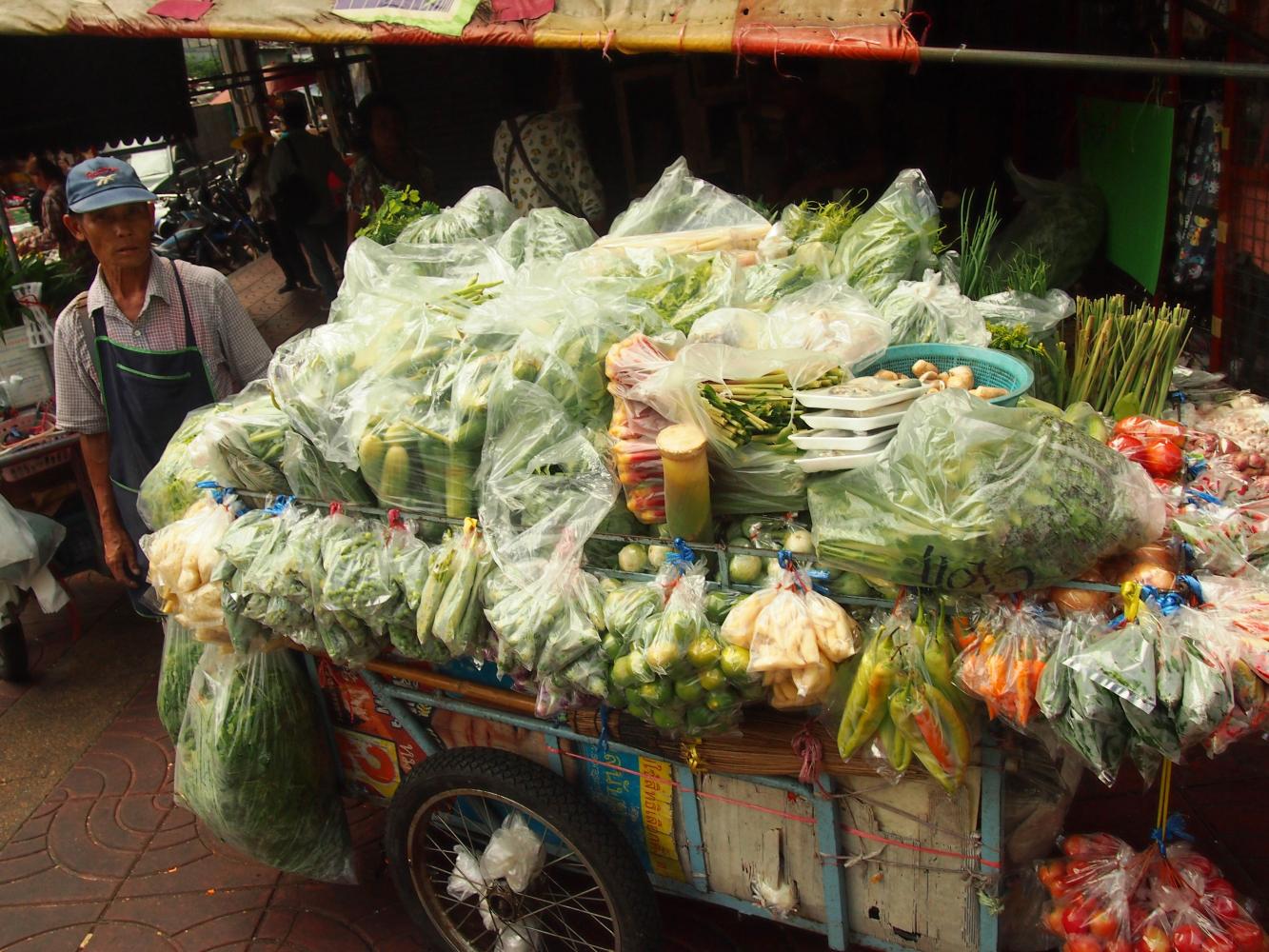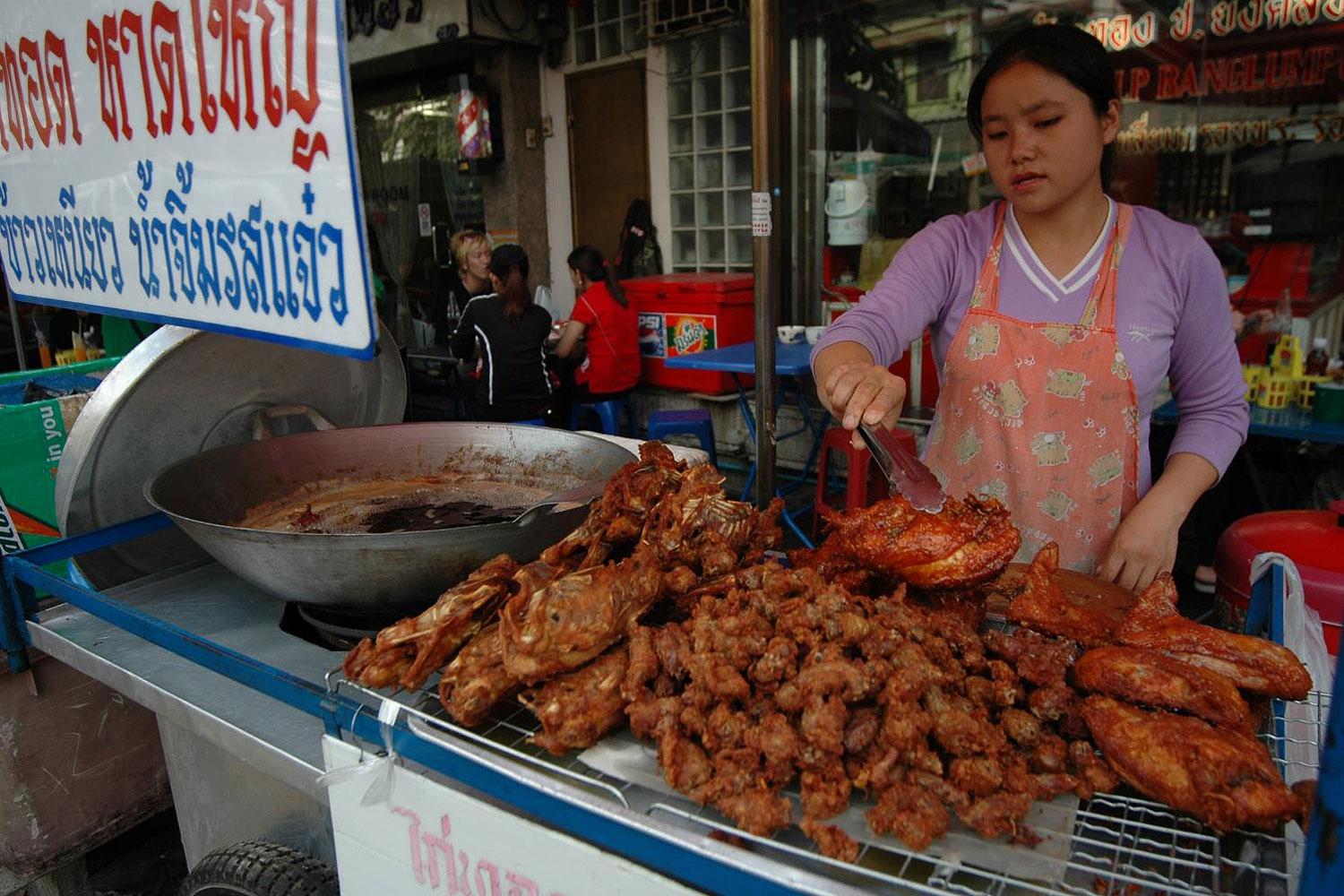
The spread of Covid-19 has disrupted supply chains and international trade across the region. The implications for food supplies have been considerable, with public concern growing about the safety of what we eat and drink.
Given how nervous the pandemic has made people worldwide, and the proliferation of inaccurate information about how the coronavirus spreads, it doesn't take much these days to set off a safety scare. A good recent example was found in China, where traces of the coronavirus have been found on packaging of some imported frozen seafood.
The World Health Organization (WHO) has said it's highly unlikely for people to contract Covid-19 from food or food packaging. But China nonetheless suspended many fish and meat imports, disrupting trade with several countries and causing shipping bottlenecks.
Several health experts have disputed the necessity of such precautions. While cold temperatures can preserve coronaviruses, they remain doubtful that food and its packaging pose a major threat.
Nevertheless, public concern persists. This has prompted the Food and Agriculture Organization (FAO) to clarify and revisit many of the claims about alleged tainting of food imports by Covid-19. Together with its partners, the United Nations agency has reassured food importers, handlers and consumers that the coronavirus cannot be transmitted to humans through food handling, processing or consumption.

Street vendors sell cooked food and raw produce from mobile stalls all over Bangkok. Standards of hygiene are generally excellent, studies have found. Supplied/FAO
"Across Asia and the Pacific, news about food safety issues frequently hits the headlines and reports of food contamination and food-borne diseases regularly cause alarm among the public and impact local businesses," Jong-Jin Kim, the FAO assistant director-general and regional representative, told a regional conference on food safety held recently in Bangkok.
"The concern among consumers may reflect a lack of confidence in the way food safety is enforced and practised, and that's why a forum such as this is important to restore confidence with respect to the coronavirus, but also to recall that, at the same time, good food hygiene is necessary to avoid contracting other quite serious food-borne illnesses."
During the four-day virtual conference, food safety experts from across the region emphasised the critical importance of prerequisite food safety programmes such as good hygiene practices. They underlined the need for a concerted effort to promote food safety standards and sanitary and phytosanitary (SPS) measures as well as investments in new technologies and digitisation.

MISINFORMATION MULTIPLIES
The growth of information technology, they say, has also contributed to increased reporting of food safety issues, with both genuine and fake news spreading fast through social media.
The speed of news transmission through social media frequently comes at the cost of accuracy and leads to scares, and this in turn leads to unwanted actions such as destruction of food based on hearsay rather than on science.
This is exacerbated by the limited expertise in risk communication in some countries, which struggle to ensure that correct information is made available at the right time to avoid unnecessary fear among consumers.
Behaviour change communication and the creation of a food safety culture are issues that need to be high on the agenda of national food safety authorities, conference participants agreed. These require serious commitment and understanding among food business operators, supply chain participants and consumers about the incorporation of food safety measures from farm to table.
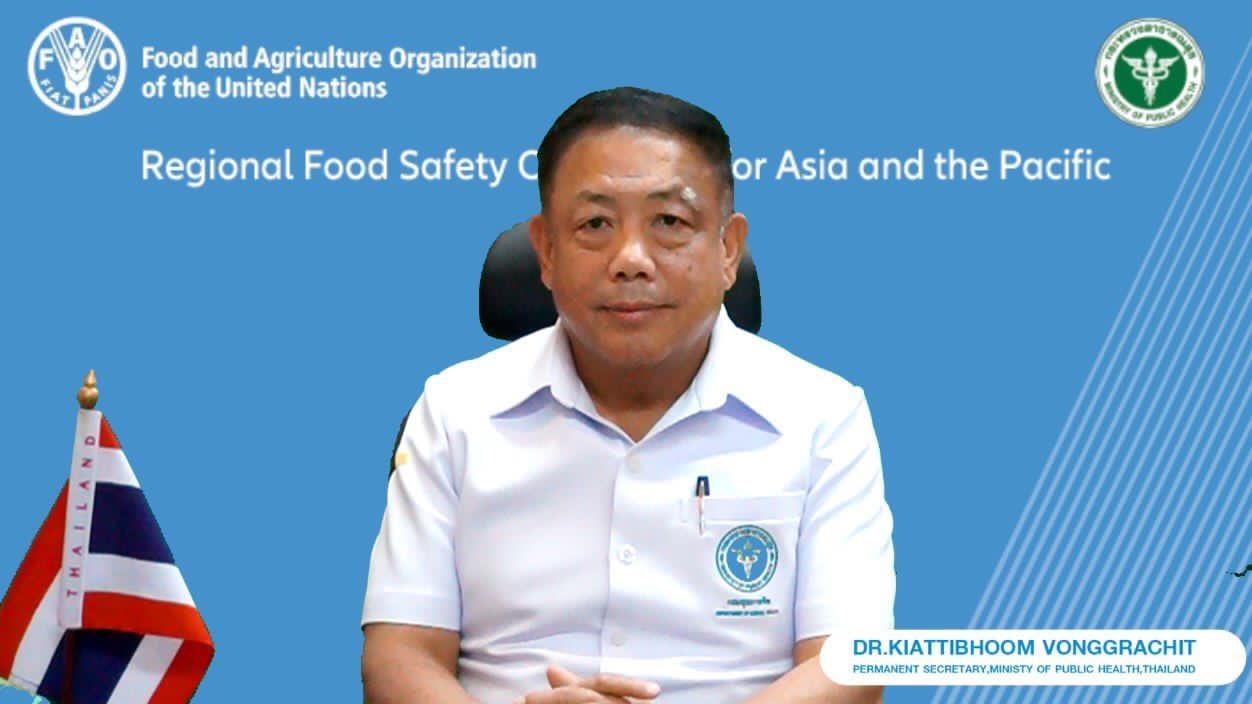
Kiatibhoom Vonggrachit, permanent secretary, Thailand Ministry of Public Health SUPPLIED
In short, all parties concerned must work together to demystify food safety for the media to ensure accurate information is presented. The internet is now the primary source of information in most parts of Asia, where mobile data is cheaper than in any other region in the world.
Consumer trust must be earned -- and that calls for investment. Prof Alan Riley from the University College of Dublin, a former CEO of the Food Safety Authority of Ireland, said it is essential for governments to invest in national food control systems to protect consumer health and facilitate food trade.
The impact of unsafe food on consumers' health, trade and the national economy could be severe, especially when the world is simultaneously facing the challenges of the Covid crisis and climate change.
"The bedrock of food safety control lies on policy and legislation of food standards, compatible with the Codex General Principles of Food Hygiene standard," he said. "Without policy and legislation, food safety control will not be working. The government has a huge role to play."
The legal and regulatory framework for food control needs to include a system where imports are in consonance, if not harmonised, with those of other countries. The conduct of national food safety assessments, making improvements over time, is theoretically while food hygiene, a good approach. Also essential is multi-sectoral coordination across the food chain and good corporate governance with up-to-date regulations that are properly enforced.
Globally recognised food safety management systems and all the current programmes that underpin them, built around standards already in place, still apply. Those include measures based on Hazard Analysis and Critical Control Points (HACCP) principles and grounded in the Codex General Principles of Food Hygiene.
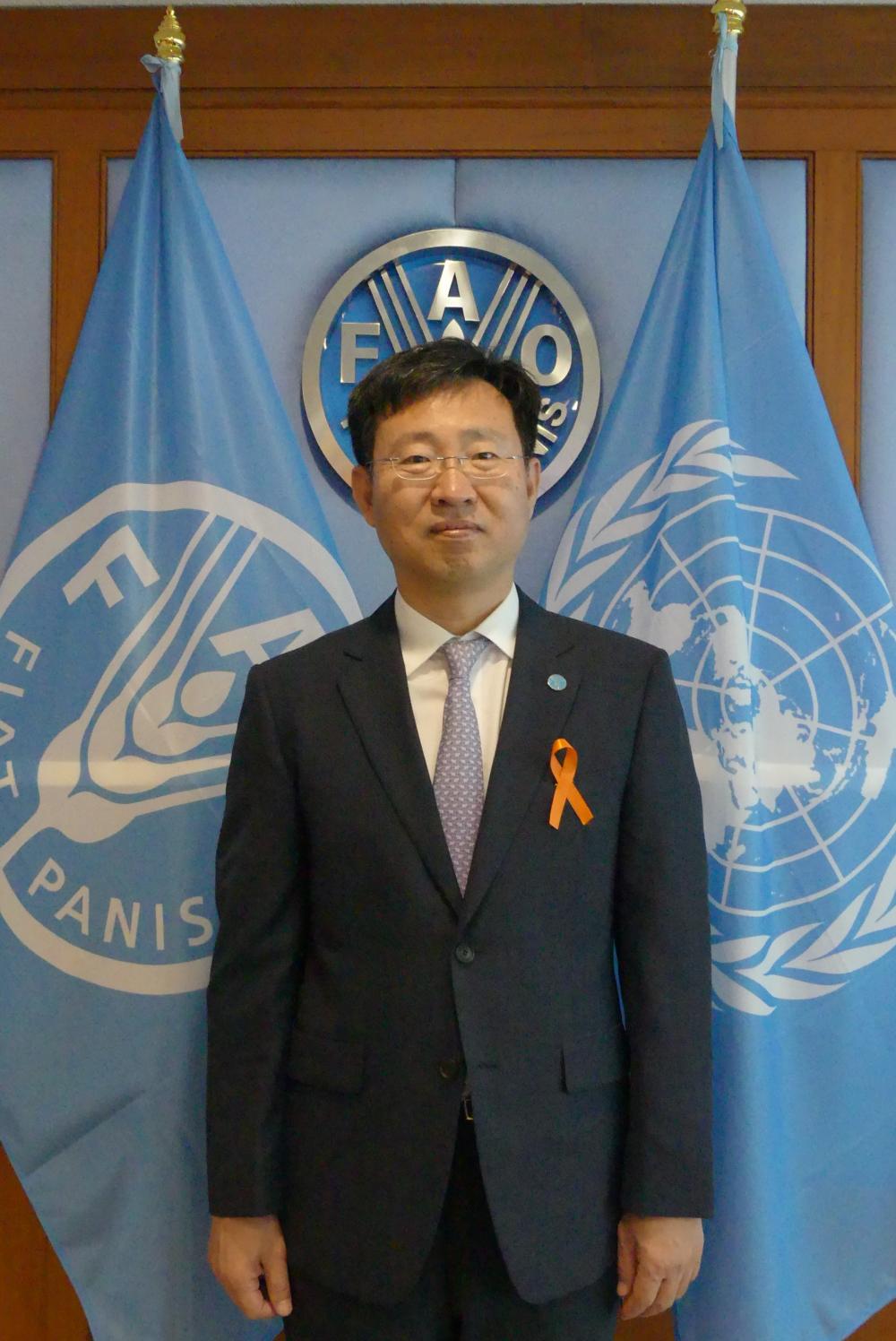
"Concern among consumers may reflect a lack of confidence in the way food safety is enforced and practised," says Jong-Jin Kim, an FAO assistant director-general. SUPPLIED
Improving food safety standards across the Asia Pacific region will also require greater investment in the infrastructure and technical capacity to assure that all food available in the marketplace is safe for human consumption.
One major challenge is that in many parts of the region, cold storage and appropriate transport are hard to find, creating a higher risk that the food can become contaminated and cause illness if not cooked thoroughly.
The diversity of countries in the region in terms of national food control systems is also a challenge, but at the same time provides opportunities to look more closely at the way food safety is managed and controlled.

The consolidation of street vendors into hawker centres helped to ensure access to "safe and affordable food", says Lim Kok Thai, CEO of the Singapore Food Agency. SUPPLIED
LESSONS FROM SINGAPORE
Food safety means food security and that is everyone's business, said Lim Kok Thai, CEO of the Singapore Food Agency (SFA). Because the city-state imports over 90% of its food, it is crucial to have an integrated food safety system from farm to fork by working closely with other countries by following international standards and Codex.
"Ensuring food safety is important for us," he said, adding that Singapore enforces robust regulatory control throughout the supply chain.
Singapore has made significant strides in food safety in the past decades. Street food is a prime example. It took determined efforts by the government starting in the 1970s and lasting 10 years to relocate street vendors into hawker centres and buildings that provided access to amenities such as clean water, electricity and drainage while maintaining good hygiene standards.
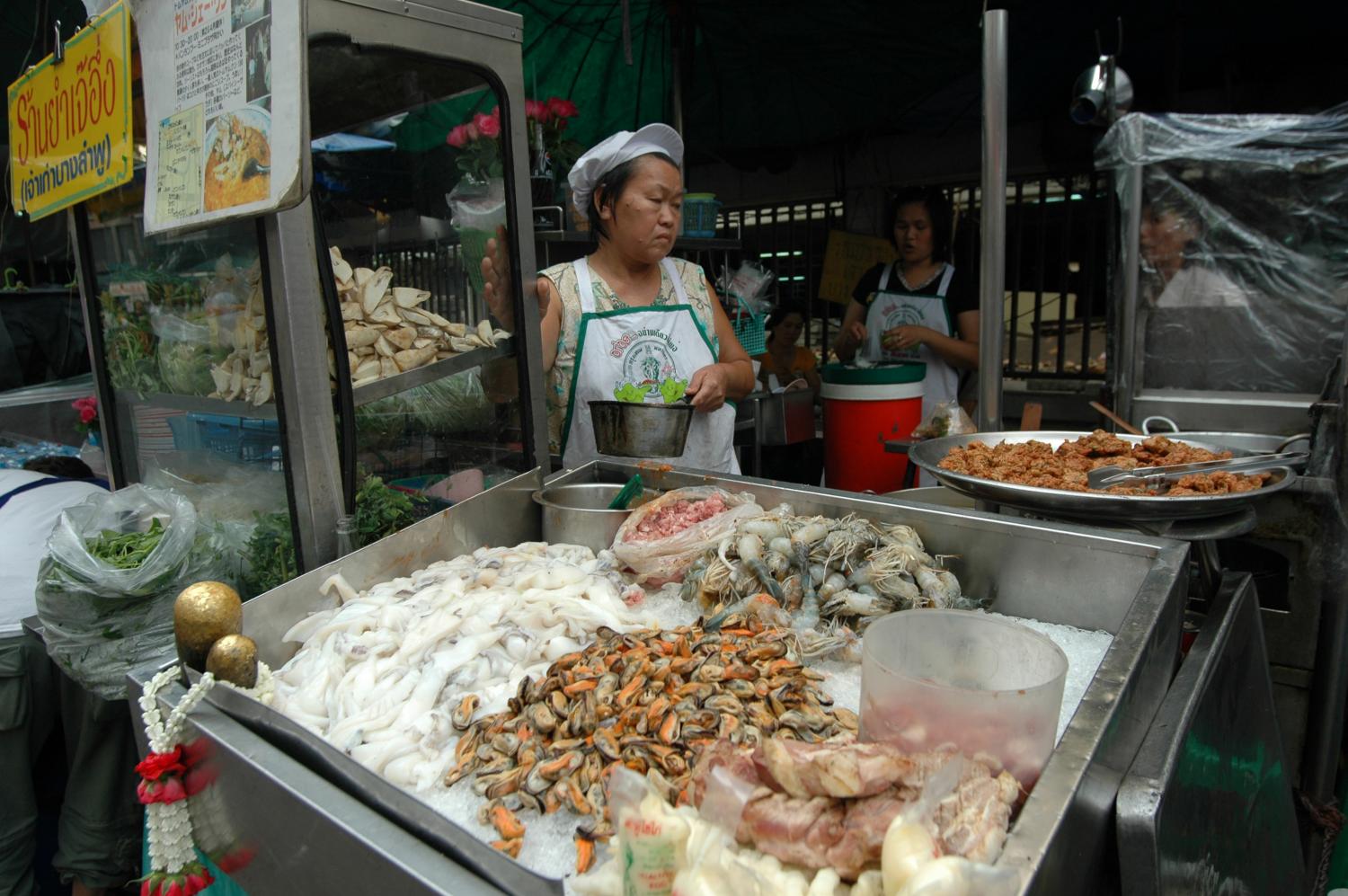
"Today, there are more than 110 hawker centres providing our people with safe and affordable food," Mr Lim said. The establishment of the SFA itself is also a good example of government investment in food safety. The agency works to consolidate regulatory oversight from different food safety and health-related ministries to holistically manage the food industry.
"Ensuring food safety is not the work of the government alone. Food safety is a joint responsibility. It is important that our food industry and consumers play their parts to ensure that the food we eat is safe from farm to fork," he added.
It is now well-recognised that food security, food safety and nutrition go hand-in-hand and achieving Zero Hunger within the framework of the UN Sustainable Development Goals is not simply about providing adequate food for everyone but ensuring safe and nutritious diets for all.
The conference stressed the importance of broad participation from authorities, private business, civil society, academia, students, the media and the general in its in-depth discussions of key food safety issues, under the theme "Regulate. Delegate. Participate." When it comes to regaining trust in food safety, three is not a crowd.

More than 300,000 Thai farmers and food producers have been certified by the National Bureau of Agricultural Commodity and Food Standards, says secretary-general Pisan Pongsapich. SUPPLIED
NATIONAL ACTION
Regional experts attending the forum also highlighted case studies and actions countries have taken.
Kiatibhoom Vonggrachit, permanent secretary to the Thai Ministry of Public Health, said the country aims to become one of the world's 10 food production centres of the future. Hence responsibility for the health of the Thai and global community is a must. "Food is our culture. We would like food safety to become our culture as well," he said.
The Thai government has been working to strengthen and improve the food safety system since Food Safety Year in 2004. A food safety roadmap has been implemented throughout the food supply chain, starting from production at the farm level, to food processing at the industrial level and food distribution in domestic and export market.
Pisan Pongsapich, secretary-general of the National Bureau of Agricultural Commodity and Food Standards at the Ministry of Agriculture and Cooperatives, said the Agricultural Standard Act of 2008 covered the setting of standards and inspection and certification, including good agricultural practice and good manufacturing practice standards.
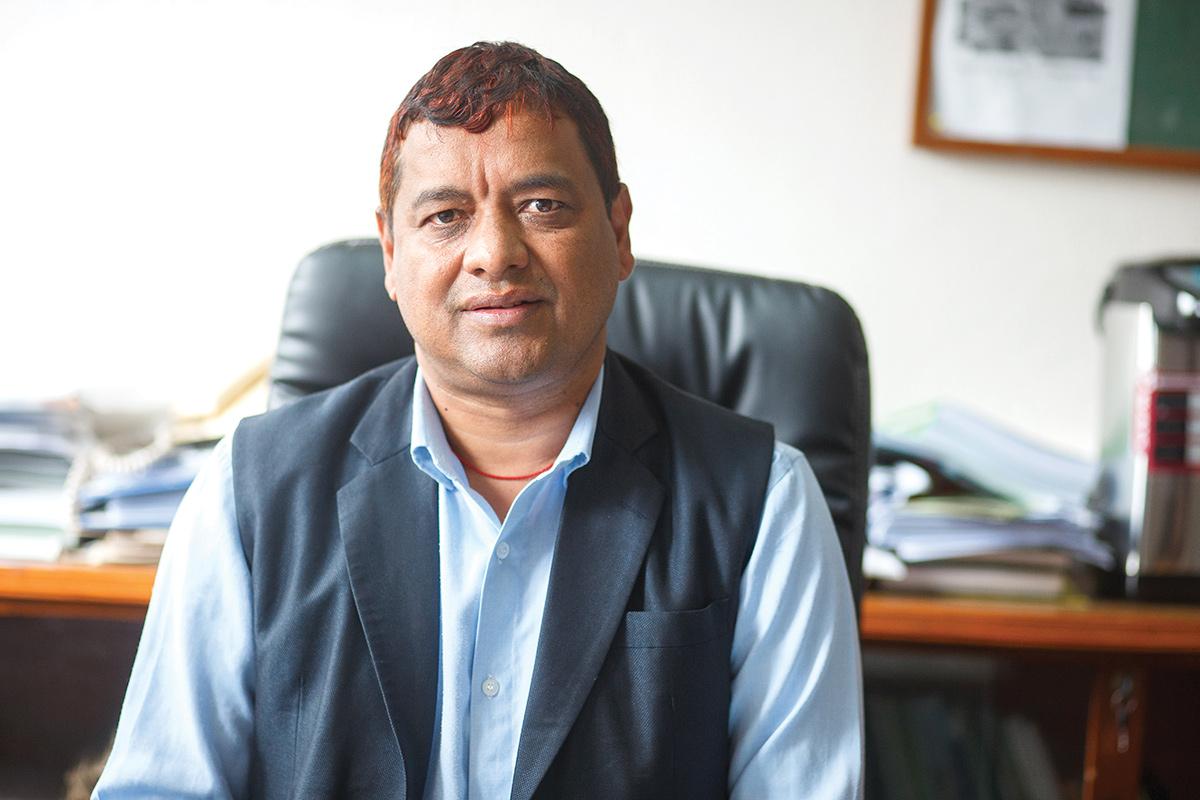
Nepal is in the process of adopting a food safety act, says Hari Bahadur, joint secretary of the Ministry of Agriculture and Livestock Development. SUPPLIED
So far, more than 300,000 farmers and food producers have been certified with the standards.
Thailand has received good support from the FAO to develop a handbook for controlling and monitoring meat products from farm to fork. The handbook also represents collaboration between the Department of Livestock Development and the Ministry of Public Health to drive food safety and traceability throughout the supply chain.
Hari Bahadur, joint secretary of the Ministry of Agriculture and Livestock Development in Nepal, said food safety issues are becoming more challenging these days. These include the use of pesticides in crop production, hormones and antibiotics in livestock, and extra salt and food additives in food processing. As well, food hygiene is crucial in consumption.
He said Nepal is in the process of adopting the food safety act. Hazardous pesticides will be banned in favour of an integrated pest management approach, while food hygiene, nutrition management and public awareness of food safety are being stressed, Mr Bahadur noted.
